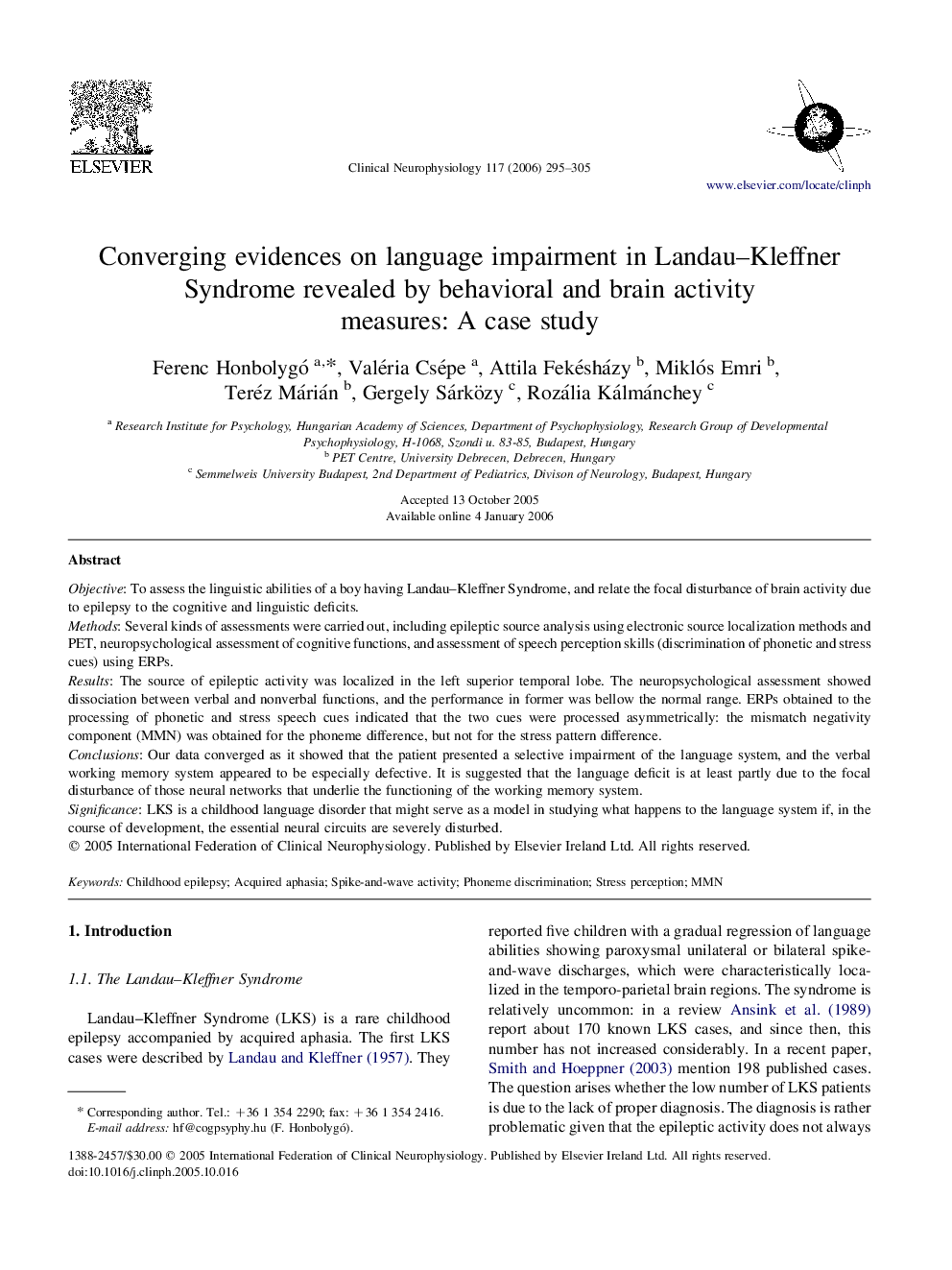| Article ID | Journal | Published Year | Pages | File Type |
|---|---|---|---|---|
| 3048135 | Clinical Neurophysiology | 2006 | 11 Pages |
ObjectiveTo assess the linguistic abilities of a boy having Landau–Kleffner Syndrome, and relate the focal disturbance of brain activity due to epilepsy to the cognitive and linguistic deficits.MethodsSeveral kinds of assessments were carried out, including epileptic source analysis using electronic source localization methods and PET, neuropsychological assessment of cognitive functions, and assessment of speech perception skills (discrimination of phonetic and stress cues) using ERPs.ResultsThe source of epileptic activity was localized in the left superior temporal lobe. The neuropsychological assessment showed dissociation between verbal and nonverbal functions, and the performance in former was bellow the normal range. ERPs obtained to the processing of phonetic and stress speech cues indicated that the two cues were processed asymmetrically: the mismatch negativity component (MMN) was obtained for the phoneme difference, but not for the stress pattern difference.ConclusionsOur data converged as it showed that the patient presented a selective impairment of the language system, and the verbal working memory system appeared to be especially defective. It is suggested that the language deficit is at least partly due to the focal disturbance of those neural networks that underlie the functioning of the working memory system.SignificanceLKS is a childhood language disorder that might serve as a model in studying what happens to the language system if, in the course of development, the essential neural circuits are severely disturbed.
